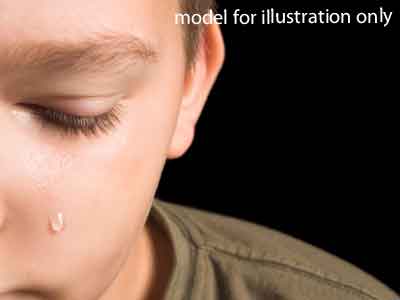Breakthrough “CART” treatment better than traditional cognitive therapy at altering hyperventilation and panic symptoms
http://www.youtube.com/watch?v=AcQsJnLBWpE
A new treatment program teaches people who suffer from panic disorder how to reduce the terrorizing symptoms by normalizing their breathing.
The method has proved better than traditional cognitive therapy at reducing both symptoms of panic and hyperventilation, according to a new study.
The biological-behavioral treatment program is called Capnometry-Assisted Respiratory Training, or CART, said psychologist and panic disorder expert Alicia E. Meuret at Southern Methodist University in Dallas.
CART helps patients learn to breathe in such a way as to reverse hyperventilation, a highly uncomfortable state where the blood stream operates with abnormally low levels of carbon dioxide, said Meuret, one of the researchers conducting the study.
Hyperventilation, a state of excessive breathing, results from deep or rapid breathing and is common in patients with panic disorders.
Book a live interview
| To book a live or taped interview with Alicia Meuret in the SMU News Broadcast Studio call SMU News at 214-768-7650 or email news@smu.edu. |
Related links
- Alicia E. Meuret
- David Rosenfield
- Journal of Consulting and Clinical Psychology: “Respiratory and cognitive mediators of treatment change in panic disorder: evidence for intervention specificity“
- SMU Department of Psychology
- Dedman College of Humanities and Sciences
More SMU Research news
“We found that with CART it’s the therapeutic change in carbon dioxide that changes the panic symptoms — and not vice versa,” Meuret said.
CART: Breathing exercises twice a day
During the treatment, patients undergo simple breathing exercises twice a day. A portable capnometer device supplies feedback during the exercises on a patient’s CO2 levels. The goal of these exercises is to reduce chronic and acute hyperventilation and associated physical symptoms. This is achieved by breathing slower but most importantly more shallowly. Contrary to lay belief, taking deep breaths actually worsens hyperventilation and symptoms.
“Most panic-disorder patients report they are terrified of physical symptoms such as shortness of breath or dizziness,” Meuret said. “In our study, cognitive therapy didn’t change respiratory physiology, but CART did effectively reduce hyperventilation. CART was proved an effective and powerful treatment that reduces the panic by means of normalizing respiratory physiology.”
The findings, “Respiratory and cognitive mediators of treatment change in panic disorder: Evidence for intervention specificity,” appeared in the Journal of Consulting and Clinical Psychology. Meuret, who developed CART, is an assistant professor in the Department of Psychology at SMU and co-directs the department’s Stress, Anxiety and Chronic Disease Research Program. The Beth & Russell Siegelman Foundation funded the research.
CART breathing a proven biological therapy
The study pitted CART against a conventional cognitive therapy treatment, or CT. Traditional CT teaches patients techniques aimed at helping them change and reverse catastrophic thoughts in order to reduce fear and panic.
In the CART-CT study, 41 patients were assigned to complete either a CART or CT treatment program for panic disorder and agoraphobia, a fear of being trapped with no means of escape or help.
Both treatment programs were equally effective in reducing symptoms, said Meuret. But CART was the only treatment to physiologically alter panic symptoms by actively reversing hyperventilation in the patients. Cognitive therapy didn’t change the respiratory physiology, said Meuret.
Treatment helps patients address terror associated with panic
The study is the second randomized control trial to measure CART’s effectiveness. By reversing hyperventilation, patients reported a new ability to reduce panic symptoms by means of changing their respiration.
With CT, Meuret said, if a patient reports shortness of breath, the therapist challenges the assumption by asking how often the person actually has suffocated during a panic attack, then hopes that will reverse the patient’s thinking.
“I found that process very challenging for some of my patients because it acknowledges the symptom but says it’s not a problem,” Meuret said.
“CART, however, tells us a patient’s CO2 is very low and is causing many of the symptoms feared, but it can also show how to change these symptoms through correct breathing. There has been an assumption that if people worry less about symptoms it will also normalize their physiology, but this study shows that this is not the case,” she said. “Hyperventilation remains unchanged, which could be a risk factor for relapse down the road. Apart from hyperventilation being a symptom generator, it is an unhealthy biological state associated with negative health outcomes.”
Broader study planned to measure CART
The researchers plan to branch out with their studies on CART by taking the program into the community, particularly to ethnic minorities. They believe CART is a more universally understood treatment due to its physical exercises — as opposed to cognitive therapy’s more intellectual methods — and therefore more accessible to a broader range of people with varying levels of education and different cultural backgrounds. Ongoing studies will test the efficacy of CART in patients with asthma and fear of blood.
Co-authors of the study at SMU were David Rosenfield, associate psychology professor, and psychology graduate students Anke Seidel and Lavanya Bhaskara. Stefan G. Hofmann, psychology professor at Boston University, was also an author on the paper. The research was funded by the Beth & Russell Siegelman Foundation. — Austin Reed
SMU is a private university in Dallas where nearly 11,000 students benefit from the national opportunities and international reach of SMU’s seven degree-granting schools. For more information see www.smu.edu.
SMU has an uplink facility on campus for live TV, radio or online interviews. To speak with Dr. Meuret or to book an interview with her in the SMU studio, call SMU News & Communications at 214-768-7650.
























